Meanings of words:
-
‘Dukkha’ This Pali / Sanskrit word means ‘suffering, anxiety, dissatisfaction, and discontentment’ and it forms the basis of Buddha’s four noble truths.
-
‘Gham’ is an Urdu word which means ‘sorrow’ especially when it is caused by the loss of a loved person or failure in life. Ghalib has used it in many of his poems.
Part I: A Portrait of my Companion.
This little piece is a story of my experiments with relief from ‘dukkha’ and ‘gham’ but before I begin to narrate the tale, I am impelled to introduce you to my colleague, who has been working with me in all my intellectual pursuits. I share a love-hate relationship with him. I like him because he is honest and truthful, but dislike his overbearing nature. Some of his traits are:
-
He seems to know everything about everything, and so he does not let anyone else talk.
-
He claims to have read many books. In actual fact, he has read a lot of titles of books, and knows the names of the authors. He does scant justice to writers. When he picks up a book, he randomly opens it somewhere in the middle, and then he jumps to the end and glances at the first few pages. I have never seen him reading a book from cover to cover.
-
Wisdom has not reached anywhere near him. As he himself admits, he does not know who he is. He says he is still searching for his own identity.
-
The apparent humility of his persona derives out of arrogance.
-
Educated in Hindi-medium schools, he has neither learnt the grammar nor the syntax of English. He cannot tell the difference between a verb and an adverb. He thinks in Urdu, Hindi or Punjabi, and yet has the audacity to write in English. If it had not been for the spell-check on the computer, his writings would be incomprehensible.
-
Urdu is his favorite language, but he cannot read its script.
-
He believes in nothing. If you disagree with him, he changes colors like a chameleon, and disagrees with himself! It is difficult to draw him into an argument.
-
An avowed agnostic, he has no hesitation in going to the places of worship of every faith or religion. It must indeed be granted to him that he is secular, in every sense of the word.
-
He is a left hander, but writes with his right hand. In fact he is a bit ambidextrous.
I think I have portrayed a perfect imposter. Logically, I should now reveal his identity. He belongs to a village near Sargodha; but he joined me in Peshawar, about 72 years ago, when I was born in that town inhabited by ‘Patahans’. However, I became aware of his existence much later, when he got in conflict with me, one day. Unfortunately, he does not have a name of his own. This pretender is, in effect, my alter ego. For those who do not recollect the meaning of the term, permit me to mention that it means, “A person’s secondary or alternative personality” (The word is also used to refer to an intimate and trusted friend) He has been following me like a shadow all these years, and I use him as a punching bag; ascribing all my faults and failings to him. It is the nature of the shadow to become invisible when I go to a dark place, and reappear as soon as a light is switched on.
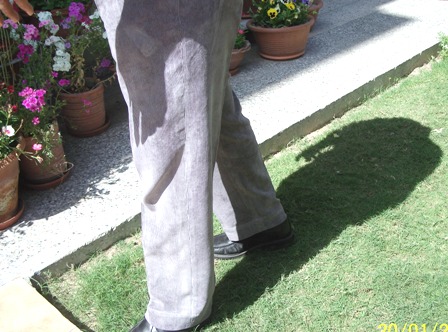 The shadow is my most faithful companion
The shadow is my most faithful companion
Part II Emergence of my Alter-ego
The ego and the alter-ego lived in harmony in my system for a few years. The first palpable conflict between the two erupted somewhat early in my life, and I must insert it here and now. It was the first battle in a lifelong war.
I do not remember how old I was but It was long before I began reading serious books. Our parents were orthodox Believers and the family observed a strict discipline and routine. We assembled in the prayer room and recited prayers every evening. Absolute faith in God was taken for granted, and we were told that if you pray sincerely, your wishes would be granted. I accepted what I was told.
Early in life, I discovered that my left hand was stronger than the right one, and I had a tendency to hold the pen in the wrong hand. While playing games like hockey, this was a distinct disadvantage. My friends and cousins teased me when I held the tooth brush the way I did. Tired of being jeered and laughed at, I decided to pray to the Lord for help. I had been told that if you prayed and performed penance for forty days, the wish would be granted. Secretly, I chose to pray with my heart and soul and simultaneously adopt a punitive posture, when everyone had gone to sleep, for forty days. On the fortieth day, I got up with great expectations, with the firm belief that I would become a right-hander like everyone else. I did not use the hands until late during the morning, fearing that it might mean that I did not have implicit faith in the Lord. But when I finally went into the bathroom, I found that I was as left-handed as ever before, if not more!
As left handed as ever before!
The experience left me severely disillusioned. While I continued to join the family in the prayer room, I went there as a mere ritual. A part of my being had lost faith, and sometimes, I felt like an imposter in the House of the Lord. From here on, the ego continued to be faithful, while the alter-ego had lost trust in God..
Part III Discovery of Indian Poverty and Misery of Old Age
I suspect that there is a Buddha in every one of us. As a child, I had lived in military cantonments, which were clean and well maintained. Even the servants were well fed. I was an avid reader, and I read quite a few books. To begin with I read detective stories and light romance.
Then, in the summer of 1954 and 1955, we went to Yamunanager, where our father had been allotted about eleven hectares of land, in a village near that town. We also went to the village, since our cousins lived there. Having lost our ancestral house, we decided to build a house there. The construction workers and the farmhands whom we met there produced a sordid picture of poverty and hunger. I was moved by what I saw. My parents were kindly and generous towards the workers and they shared the food with them. In fact, our mother was of the firm belief that whatever was left over during the meal belonged to the poor. She refused to acquire a refrigerator, since it caused people to preserve the surplus for the next meal. The word she coined for the “fridge” was ‘gharib maar’ As far as I remember; our parents did not buy a fridge until some of the servants had acquired it, themselves. Given below are some pictures of construction workers and the men and women who worked in the fields.
Even small children carried heavy loads on their heads, at an age, when they ought to be going to schools
Their clothes were torn, and you could count their ribs, when you saw them . They were underfed.
Paddy transplantation was the most arduous task
Simultaneously, I saw the sufferings and tribulations of the elderly people. They were weak, lonely and helpless. The joint families were breaking up, and the elderly had lost their ancestral houses during the partition. In our own house we had a grandmother, (we called her Bhabhiji), who was forever unhappy. And she had good reason to be sad and even miserable. Born as a fair of the fairest girls in the village, she was never tire of telling us how our great grandfather had begged her father for the marriage to our illustrious grandfather. Thereafter, she had seen the best of everything when her husband rose to become a celebrity. No one knows when she was born, but the best guess is 1878. In 1926, when she was merely 48 years old, disaster struck. Our saintly grandfather died of cancer. But she braved the catastrophe. Her house (called ‘makaan’, since it was the first brick house in the village) continued to retain a position of authority and she live with grace and dignity. She maintained two buffalos and had enough butter-milk to give to the orphans who studied in the school adjacent to our house.
Shrimati Prem Kaur ji (1879-1967) whom we called Bhabhiji
The partition in 1947, delivered a terrible blow on her. She did not lose only that house. In effect, she lost her whole world; her domain and even the identity. The Lord had given her four sons and one daughter. They all had good houses, and she was not deprived of the creature comforts. In fact, the houses in which we lived after 1947 had many things which her house in Farooka lacked. We had electricity, running water, ceiling fans and attached bathrooms, which no one had there, but Bhabhiji was, forever unhappy, after she lost her home in 1947..
By my estimate, Bhabhiji was just a little under seventy years old in 1947. She was in good health. In retrospect, I think, she had three main problems. One, she had to move from one place to another whenever her sons were transferred and she was not used to shifting residence. Two, she had no work to keep her occupied. And three, she was not able to adjust to the urban civilization and culture. Punjabi was the only language which she spoke, but the dialect used here was alien to her. She was also shocked by the dress which the women wore. I distinctly remember her chiding a lady who had come to our house for not covering her head with a veil. It became very embarrassing, because her husband was our father’s boss. Consequently we did not let her enter the drawing room whenever there was an important guest.
To keep her busy, we bought a spinning wheel for her since she was fond of creating her yarn for weaving bed covers, known as “khes” in Punjab. But she soon discovered that there were no takers for what she produced, in Meerut, since no body used khadi bed linen any longer. In utter despair and anguish, she used to run into foul moods and say unkind things to everyone. The Lord gave her a long life, and she lived on till 1967, when she was nearing her ninetieth birthday.
Bhabhiji with her spinning wheel…but no takers for the yarn!!!
Part IV In Search of God and Tranquility
Unlike Siddhartha Gautama, I did not go away to the Jungle in search of God. I believed that I would find Him in the books. I had read my quota of light romance and detective books by that time, and got into reading serious books. Since I detested poverty and hunger, I had decided to take on a profession where food would be plenty. Consequently, I joined the National Defence Academy in January 1958. There, I met Joseph Thomas, who cast a magical spell on me. He was an avid reader, and a good Christian. With him, I went to the Church, and I liked the way they delivered the Sermons. This opened the doors to other religions and I read Holy books of several faiths. After a year or so, I joined the ‘Camera Club’ which was located near the Library. I drew as many books as I liked, and it is true that I did not read them the way most people do. I skipped like mad, and often completed a full length book in a couple of hours. However, this was not true in all cases.
Before proceeding further, let me recount the names of the authors who impressed me th most, since I owe a lot to them. I read GB Shaw, Rudyard Kipling, W Somerset Maugham, Margaret Mitchel, Bertrand Russel, Daphne du Maurier, Nirad Chaudhary, Pearl S Buck, Ernest Hemingway and to entertain myself, I sometimes turned to PG Wodehouse. To understand S Radhakrishnan, I had to consult the dictionary once too often. Gurudev Tagore and Ghalib belonged to a different category. I read their works like Scriptures. In Indian languages, I read Munshi Prem Chand, Prof Mohan Singh, Gurbaksh Singh, Bhai Vir Singh and Sahir Ludhianvi.
Let me mention here that I did not skip through all books. There were some, which I literally chewed and digested. I went through them over and over, until I had understood the message of the author fully. In the context of the present story a book which left an indelible mark on me was the Razor’s Edge by Maugham. It led me on to the Katha Upanishad and I got introduced to the Vedic texts. This ‘novel’ as Maugham admits does not have a powerful story, and to write the book the author travelled to India, and met several Indian Saints. Around the same time, I had read, “Why I am not a Christian” by Bertrand Russel.
Two things happened. I was strongly influenced by the concept of Agnosticism. Secondly, I was sold out to the idea of meeting people of all faiths, who had a large following. Our father was averse to the ‘Holy men’ since he believed that most of them were ‘fake’. But I thought if they were phony or fraudulent, they could not attract so many people day after day.
The Razor’s Edge opens with a profound quote from the Katha Upanishad which says:
“The sharp edge of a razor is difficult to pass over; thus the wise say, the path to Salvation is hard”
It became clear to me that the questions to which I was seeking answers were not easy. Wise men have grappled with them for centuries, and spent their lifetimes in search of answers. I do not recall the books in which I read them, I remember two anecdotes till this day.
In the first one, the Yogi was a disciple of the River Ganges, and he was told by his Deity that he would be permitted to walk over the river if he worshipped with resolute and unflinching faith. The Yogi travelled all along the river from ‘Gangotri’ to the Varanasi and back, performing the prescribed ‘asanas’ at all the holy places. The Goddess Ganges was pleased, and he was allowed to walk on the water. The only catch was that he was permitted to do so on some very special occasions and no one other than those who were his devoted followers was allowed to see him perform this miracle. The author of this parable was permitted an audience with the Saint, and he answered his spiritual questions, but remained silent on the subject of ‘walking over the river’ The story teller went over to the ‘Ashram’ of another yogi in the vicinity and asked him whether he believed in the story. The holy man gave a very profound reply, “What difference does it make whether his claim is true or false? It costs only eight annas to cross the Ganges by boat. And when the bridge here is built, everyone can perform this feat as often as he likes!”
Our Saviour, Jesus Christ walking on water. The Saint was said to have attained this power, too.
The second story is about a rich European young man, who gives up his very successful business in search of ‘truth’. And for that, he chooses India. He travels all over the country and finally becomes the disciple of a Saint to study Indian scriptures. His father comes over and finds him in a dhoti and with a thread across his body. He asks him what he is seeking and our friend says, “I am looking for wisdom” The father asks, “And what will you do, when you get the knowledge?” The answer which he received put an end to all further queries. His son said, “Ah! If I get it, I suppose, I will be wise enough to know what to do with it!”
Part V Believers, Non-believers and Mute Folks
I have not seen God. I have also not yet met anyone who has set eyes on the Lord. But they say, that just because you have not seen an object, it does not mean that it does not exist. As an example, no one has seen an electron, but we know that they create electricity. The debate on whether God exists or not is as old as human history. For a long time, mankind was divided into two groups: ‘believers’ and ‘non-believers’ The believers then sub-divided themselves into sectarian religions, such as Christians, Muslims, Hindus, Buddhists, Jews,Sikhs, Jains, Zoroastrians and many others. The major religions are also separated by sub-sects. Members of each faith conform to a set of well-defined customs and traditions. Their dress codes, names, food habits and the methods of prayers differ. Followers of every faith insist that their particular faith is the best path to salvation. The loyalties are so strong, that they are willing to fight and lay down their lives for their belief.
As children, we were told that the religious people are more trustworthy and that one should be careful while dealing with a non-believer. It was said that ‘dharam’ (faith) and ‘iman’ (honesty) go together. My personal experience does not support this belief. I have seen deeply religious persons cheat and evade taxes. On the other hand I have met many agnostics who are absolutely truthful and fair in their dealings. Even in temples and gurudwaras, funds are misappropriated, and we all know that.
The non-believers are better in one way: they do not come to blows for their convictions. However, over the years, they have also divided themselves into a few categories. Some of the better known forms of irreligious groups are listed below:
-
Atheist. The term atheist can be defined literally as lacking a humanoid god concept, but historically it means one of two things. Positive atheism asserts that a personal supreme being does not exist. Negative atheism simply asserts a lack of belief in such a deity
-
Anti-theist. When atheist consistently evoked images of Madeline Murray O’Hare, hostility toward religion was assumed. Now that it may evoke a white-haired grandmother at the Unitarian church or the gay kid on Glee, some people want a term that more clearly conveys their opposition to the whole religious enterprise. The term anti-theist says, “I think religion is harmful.” It also implies some form of activism that goes beyond merely advocating church-state separation or science education. Anti-theism challenges the legitimacy of faith as a moral authority or way of knowing
-
Agnostic.. Agnostic doesn’t convey the same sense of confrontation or defiance that atheist can, and so it gets used as a bridge. But in reality, the term agnostic represents a range of intellectual positions that have important substance in their own right and can be independent of atheism
-
Skeptic. Traditionally, skeptic has been used to describe a person who doubts received religious dogmas. However, while agnostic focuses on God questions in particular, the term skeptic expresses a broader life approach. Someone who calls him- or herself a skeptic has put critical thinking at the heart of the matter.
-
Freethinker. Free-thinker is a term that dates to the end of the 17th Century, when it was first used in England to describe those who opposed the Church and literal belief in the Bible. Freethought is an intellectual stance that says that opinions should be based on logic and evidence rather than authorities and traditions
-
Humanist. While terms like atheist or anti-theist focus on a lack of god-belief and agnostic, skeptic and freethinker all focus on ways of knowing—humanist centers in on a set of ethical values. Humanism seeks to promote broad wellbeing by advancing compassion, equality, self-determination, and other values that allow individuals to flourish and to live in community with each other. These values drive not from revelation, but from human experience
-
Pantheist. As self-described humanists seek to reclaim the ethical and communitarian aspects of religion, pantheists center in on the spiritual heart of faith–the experience of humility, wonder, and transcendence. They see human beings as one small part of a vast natural order, with the Cosmos itself made conscious in us.
On the Internet, I found a very appropriate diagrammatic representation of the various forms of belief. It may be noted that the ‘agnostic’ is the most recent entrant into the field. The term was coined by Thomas H Huxley in 1869, and it took the spiritual world by storm. Within fifty years there were many philosophers and writers who described themselves as ‘agnostics’
Personally, I am comfortable with people of all shades and hues on this issue. I confess that when I hear melodious rendering of religious hymns, I experience peace and tranquility. If a place of worship is well maintained, there is a definite feeling of positive vibes.
And, I also confess that I pray, whenever I feel weak or vulnerable. But I do not pray for any material benefit. I seek strength, peace and well being.
Gurudev Tagore on God.
I would like to conclude this part of the discussion with a poem from Gitanjali, by Rabindranath Tagore. It is as subtle and enigmatic as God, as comprehended by me.
I BOASTED among men that I had known you. They see your pictures in all works of mine. They come and ask me, ‘Who is he?’ I know not how to answer them. I say, Indeed, I cannot tell.’ They blame me and they go away in scorn. And you sit there smiling.
I put my tales of you into lasting songs. The secret gushes out from my heart. They come and ask me, ‘Tell me all your meanings.’ I know not how to answer them. I say, ‘Ah, who knows what they mean!’ They smile and go away in utter scorn. And you sit there smiling.
Part VI. The Purpose of Life and the Goal
I think, no subject has been examined in as much detail as this one. It is the central issue in the Holy Gita, and nearly every one whom I know has been confronted with this question at one time or the other. People turn to religions in search for a satisfactory answer to this question. The organized religions have taken different positions on the issue, and these have been discussed at some length in an article hosted by Wikipedia, which may be accessed by clicking on the following link:
http://en.wikipedia.org/wiki/Meaning_of_life
It would be observed that in most cases, the religious masters have promised a place in the Heavens to those who follow the straight and narrow path. In some cases, the believers are told that they would be released from the cycle of re-birth if they please the Lord through meditation and righteous deeds.
An overwhelmingly large majority of people believe that the aim of life is:
-
To work hard so that they can accumulate a lot of worldly riches and creature comforts
-
Live a long and healthy life.
-
Bear a few children and bring them up in a decent manner
-
Some people want to contribute to social causes to win public acclaim..
In my view, these are all natural quests and instinctive desires. We pursue them without even giving a thought. My personal experience shows that these four ‘goals’ need to be examined and analyzed systematically. My research reveals the following results.
Wealth. We need money to buy all that we need to live. But some of us overdo this, and use unfair means to acquire wealth. They either grab the share of their siblings or cheat in business. They end up with sprawling mansions and swank cars. The jealousies which they invoke and the curses of their peers weigh them down, and steal their sleep. Even during their waking hours, most of the time and effort goes into holding on to their ill-begotten gold. I have never seen anyone satisfied with his possessions and the power which the money gives them over others hangs like a millstone around their neck. To me, it seems that there is no direct correlation between wealth and happiness. Finally, it has been my experience that inherited wealth has rarely brought happiness to a man, especially if he has taken more than his share. Over the years, I have come across a lot of poor people who are happy, and many miserable rich folks. Working on the fields or carrying heavy loads is not easy, but I have seen a smile on the faces of those who have to do it. And I have seen frown on the faces of people who are laden with diamonds and gold. Given below are a few pictures to illustrate my contention.
Do you notice the cheer on the faces of these women who are going to transplant paddy, which is so difficult!!
Look at the enthusiasm with which this man is carrying his load, and he is going to walk uphill, in Shimla!
This unfortunate and miserable man is carrying no load on his head or shoulders. He is only afraid that he will lose the wealth which he has cleverly grabbed from others…The strain is palpable on his face!
Longevity. A healthy and long life is enjoyable if and only if the life is useful to the others. Those who merely add years to life are a burden on society. The most miserable ones are those who spend the last years of their lives in and out of hospitals. My heart aches with pain when I see someone in the ICU on life-support system, when the probability of his recovery is low. The doctors hold on to him for selfish reasons and the relatives are helpless spectators. Let me add here that some of the people, whom we remember with admiration, lived very short and intense lives. Joan of Arc (19); Arun Khetarpal (21); Bhagat Singh (23) and Madhubala(36) are some notable examples.
Indeed, if the few additional years come out of many visits to the Doctors and Laboratories, I am not sure that they are worth all that effort and money. Given below are just two pictures of unfortunate rich persons ‘imprisoned in the ICUs.
For my friends, I pray,” May God add life to your years, and not just years to your life!”
Children. Kids bring great joy to the family. Nothing gives more pleasure to the parents than to see his offspring growing up. But to expect them to leave their professional pursuits and their own children to help you and wash your bottom when you are weak and old is unreasonable. These days, many children have migrated to greener pastures in distant places. And so you are lucky, if they can come for your last rites. Here also, let me remind you that some eminent people like Dr APJ Abdul Kalam, Lata Mangeshkar, Ratan Tata and AB Vajpayee chose to remain unmarried and have lived perfectly happy lives without children. Some others like Ghalib and Jagjit Singh were blessed with children who died within their lifetimes. Gurudev Tagore had five children, but most of them died within his own long life, and he has no direct descendant now. Indeed, the most unfortunate was the Mogul emperor Shah Jehan whose wife bore him 13 children. Seven survived, but one of them, Aurangzeb, killed all his brothers and put his father in jail for life. I am told that he sent the severed head of the Crown Prince, Dara Shikoh to the emperor on a platter as a “souvenir”!
Social Service. This is the noblest of all deeds. However, I notice that in some cases, people seek a lot of publicity for the little which they do. They go running after the press and media for acclaim, and expect all their friends to recognize them as ‘philanthropic’. My personal belief is that if one takes to social service, he must not talk about it.
My Search for the Purpose or Meaning of Life
I read all the books which I could, and met as many people as I could reach out to. The best answers which I got were from Shri Rajneesh (Osho) and Sathya Sai Baba. I was able to gain the audience of Shri Rajneesh in Pune in 1979, and when I asked him this question, he said,
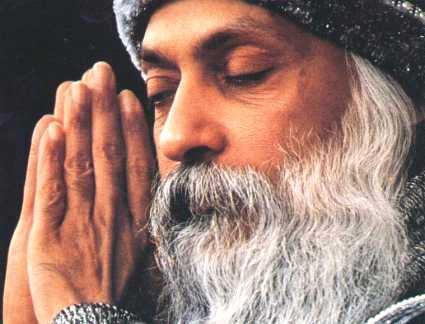 Shri Rajneesh (Osho)
Shri Rajneesh (Osho)
“Look at that bird…and now think of a cow grazing in the field. What is their purpose in life? What is the meaning of life for them? If they do not need a purpose, why do you seek it? Life is not purposeful…it is playful! Derive joy out of whatever you are doing. Love the people around you and help them in whatever way you can, and you will feel fulfilled!”
Sathya Sai Baba was kind enough to take us to his personal chamber. When I asked him the same question, his answer was:
Shri Sathya Sai Baba
“There is no specific or unique answer to this question. The purpose of your life changes from moment to moment. The solution lies within you. You only have to look inwards… Make sure that you do nothing today which will cause you to feel embarrassed when you see you face in the mirror tomorrow morning!”
I also like the ‘fun show’ (tamaasha) theory, suggested by the Masters. Guru Gobind Singh ji says:
Main hoon Param Purukh ka dasa
Dekhan aayo jagat tamaasha
(I am the slave of the Lord; and I have come to see the fun show on Earth)
Mirza Ghalib says a similar thing
baaziichaa-e-atfaal hai duniyaa mere aage
hotaa hai shab-o-roz tamaashaa mere aage
This world is a kinder-garden as far as I am concerned
The passing of night and day is merely a show ( tamaashaa)
Part VII Recovery of Faith
I am approaching the end of my narrative. My search has not yielded a solution which can satisfy everyone and in all situations. Mirza Ghalib whom I adore as a Master was resigned to the fate. In his works, he has almost hyped ‘gham’ and said,
Qaid e hayat o band e gham asl me dono aik hain,
Maut se pehle aadmi, gham se nijaat paae kyoN.
The bondage of life and imprisonment are one and the same thing
Why (or, how) can a man be relieved of sorrow before death??
Daphne du Maurier said something similar in “My Cousin Rachel”
“The point is, life has to be endured, and lived. But how to live it is the problem.”
The Indian Path to Salvation: The Four Forms of Yogas.
I am impelled to return to our Holy Scriptures. I think there is a solution. Let us return to the four forms of the Yogas prescribed by the Masters, and see what they say.
Jnana Yoga
This type of yoga concentrates upon identity through the pursuit of knowledge of the practitioner’s self, “Atman”, versus the eternal essence of the universe, Brahman
Bhakti Yoga
Bhakti yoga focuses upon the yogi’s devotion of a particular god or goddess of his choosing. For example, a practitioner may choose to follow Ganesha, the god of wisdom and education. The yogi then devotes his whole self to this god; much like a devout Christian dedicates his life to following Jesus.
Karma Yoga
Practitioners of karma yoga attempt to end the cycle of karma, or the result of accruing good and bad deeds throughout one’s life. An example of this is an entrepreneur who serves the society through selfless service.
Raja Yoga
The final version of Hindu yoga, Raja yoga, constitutes meditation on and the removal of the practitioner’s consciousness of the temporary self, and instead focuses upon awareness of the eternal universe. This differs from Jnana yoga in that it prioritizes meditation over learning.
*
In my own life, I have known people who attained salvation by following these paths. Dr S Radhakrishnan followed the ‘jnan’ (knowledge) path, whilst Jamshedji Tata took ‘Karma’ route. Shri Aurobindo adopted the ‘bhakti’ way, and a large number of unknown seekers follow the ‘Raja Yoga’ The fact is that many men and women have attained salvation from ‘Dukkha’ You can see a glow on their faces, and when death comes, there is a smile on their lips. As for myself, I decided to pursue a mix of all the four forms, without giving too much importance to any single path…and it is working fine, at least so far!
An Alternate Route, “Open Your Heart”
I have been giving a great deal of thought to the genesis of ‘dukkha’ and ‘gham’. Whilst I am nowhere near the likes of Buddha and Confucius, I think, I did reach the conclusion that both these are caused by an emotional imbalance. I have personally seen people who are able to bear their sorrows and joys much more lightly that others. An event like being jilted can drive some people into a depression or even suicide, whilst the emotionally stable men can just laugh it away. How do they manage to do that?
The answer is simple. If you have a close friend or an understanding elder, just go and open your heart. Watch what happens. The results can be amazing! The Christians have a system of ‘confession’ in which the priest of the parish lessens the burden on your heart by listening to the tale of vows or feeling of guilt. The technique succeeds if the confidante does not exploit your secret, and you are able to find the right words to express your feelings and experience. Aristotle used the word ‘catharsis’ though he did not explain its meaning. After the Shakespeare wrote ‘Hamlet’ the word acquired its present significance. As of now, it signifies ‘purging of negative emotions’.
My thesis is based on the process of expressing one’s feelings of bitterness or anguish to a person or a select group of friends to attain salvation. I know it is difficult, but I have already quoted ‘Katha Upanishad’ to aver that the path to salvation is as difficult as walking on the edge of a razor.
Now we are ready for the climax. I propose that in the age of computers and Internet, just write down all that is hurting you, and send it to your friends. Our blog, “Guftagu” is designed for this exclusive purpose. And indeed, if you can create one of your own, so be it. Believe you me, it works. The only help we need from you is to suggest a suitable name for the “Yoga”. The Hindi equivalent for catharsis is ‘bhav virechan’ but the term is not widely known. We will need some more research. If wwe combine all the four forms discussed above, I am sanguine that a word will emerge. If not, then we may borrow the word from English, and call it, “Catharsis yoga”
I seek your help in suggesting a suitable name for this path. And before concluding this rather long essay, let me quote a shayer by Nida Fazli, which my elder brother, AVM Manjit Singh used as a prologue to his first book, “Come Fly With Me” It expresses my sentiments, most appropriately. Being in simple Urdu, it does not need any translation.
Kabhi kabhi, yun bhi hamne, apne jee ko bahlaya hai
Jin baton ko khud nahin samjhe, auron ko samjhaya hai!
EPILOGUE
As far as I am concerned, the purpose of my life is clear to me. I have done my share of research on the subject. I am a believer…and I believe in all faiths. For me, God exists, and I see him in everyone and everything. He does not grant petty favors like making people rich or powerful. These are trivial boons…but whenever I turn to Him for help, He answers. And he gives me words to express my pain and pleasure. I spin yarns and fables. And then I put them up on the Internet. When friends respond and say kind words, my day is made. My prayer to my Creator is that when the last tale is woven, and I have pressed the “send” key, I will just have time enough to exhale my last breath and say goodbye to the world of mortals. And what be my ultimate desre? It is a simple but very profound wish. I want my words to sound well. I want the phonetics to be soothing to the ears. As an example, I have chosen a ghazal from Ghalib. When I first heard it, I could not understand a word; and yet I felt like listening to it again and again. If you like Urdu poetry, click on to the following link and just listen to it. Ghalaib attained an epic height in choosing the right words consonants to soothe the soul. Simultaneously watch Nazeeruddin Shah and Tanvi Azmi, enact the scene. After you have heard it once or twice, go through the meanings of the lyric. The last couplet (known as maqta) is the most profound. It describes my feelings at the end of completing a piece most accurately.
Now, here is the ghazal, with the meanings of the difficult words:
Zulmat kade me.n mere
zulmat_kade me.n mere shab-e-Gham kaa josh hai
ik shammaa hai daliil-e-sahar, so Khamosh hai
Zulmat: Darkness, Obscurity
Kadah: A Place (usually used as a suffix)
Shab-e-Gham: Night of Sorrow
Josh: Enthusiasm, Heat, Lust, Passion, Warmth, Zeal
Shamma: Lamp, Candle
Daliil: Argument, Evidence, Proof, Witness
Sahar: Dawn, Morning
So: Compare To
Khamosh: Appease, Lull, Mollify, Orderly, Quiet, Silent
naa muzdaa-e-visaal na nazzaaraa-e-jamaal
muddat huii ki aashtii-e-chashm-o-gosh hai
Muzdaa: Good News
Visaal: Death, Meeting, Union
Nazaara: Sight, View, Vista
Jamaal: Beauty, Elegance, Loveliness
Muddat: Awhile, Duration, Length Of Time, Period Of Time, Term, While
Aashtii: Harmony, Friendship, Peace
Chashm: Eye, Expectation, Hope
Gosh: Ear
Auj: Climax, Height, Position, Verve, Zenith
Farosh: Venal, capable of being purchased, corruptible, merchant
daaG-e-firaaq-e-sohabat-e-shab kii jalii huii
ik shammaa rah gaii hai so vo bhii Khamosh hai
Daag: Blemish, Calamity, Grief, Loss, Scar, Stain, Taint
Firaaq: Separation, Anxiety, Absence, Distance
Sohabat: Association, Company, Meeting
aate haiN Gaib se ye mazaamii.N Khayaal me.n
‘Ghalib’, sariir-e-Khaamaa navaa-e-sarosh hai
Gaib: Absence or from an unknown source
Mazaamiin: Topics, or subjects
Khayaal: Care, Imagination, Judgement, Opinion,
Ghalib: A self reference to the poet, Mirza Ghalib
Sariir: Scratching Sound Made By A Pen or writing instrument
Khaama: Pen
Navaa: Sound, Voice
Sarosh: Angel
Acknowledgement
Before beginning this piece, I deicided to discuss the contents with a few close friends. Of them, my old buddy, Col Vinod Kumar (Popularly known as Chaudhary) contributed meaningfully. I have no means of thanking him for all that he does to share his views. In fact as ‘bench mates’ during the Degree Course, we have shared many such sessions of ‘Guftagu’ with him. Given below are two of his pictures. In the first one, he is weighed down by the cares of his responsibilities, whilst in the second one, he has overcome ‘dukkha’. This six foot tall ‘young’ man looks a lot more lively, in person!
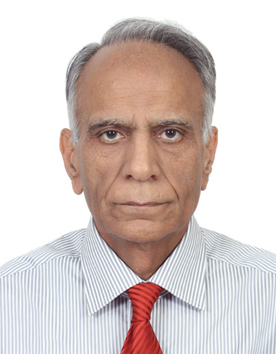 Col Vinod Kumar,as the Chairman St Kabir Institutes, Ahmedabad
Col Vinod Kumar,as the Chairman St Kabir Institutes, Ahmedabad
And this is the ‘real’ Vinod, as we have known him, all these years!

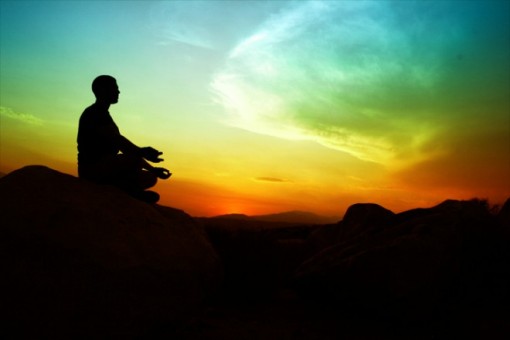

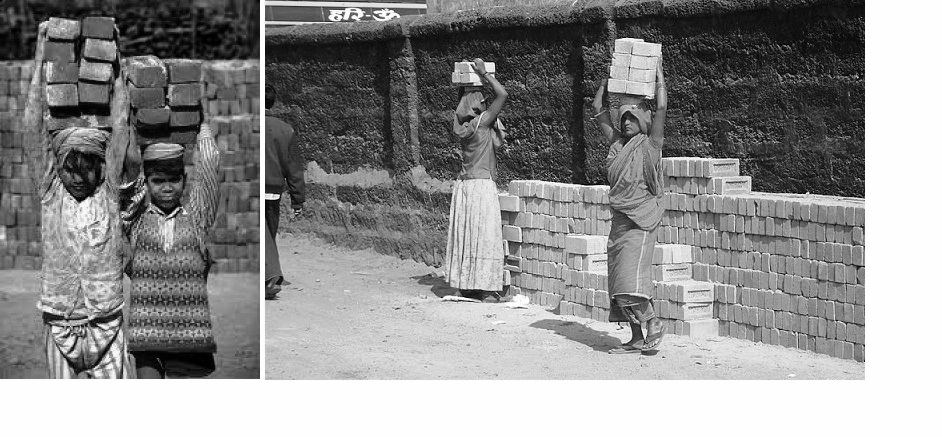
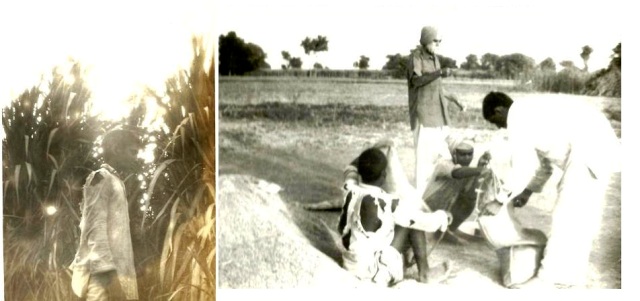

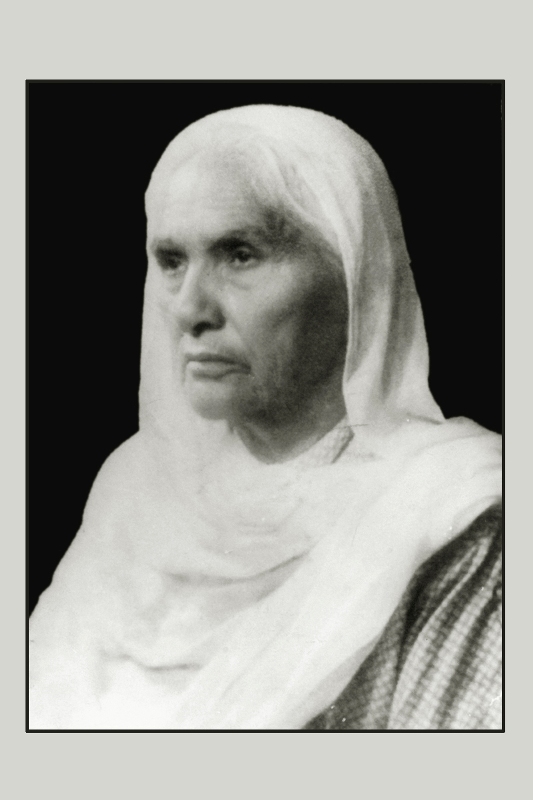
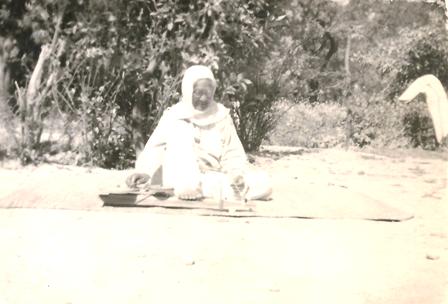

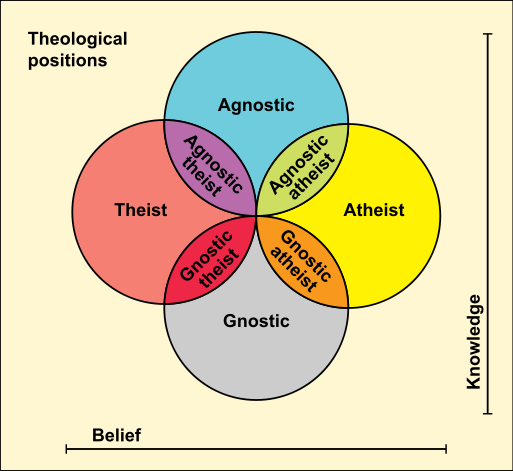
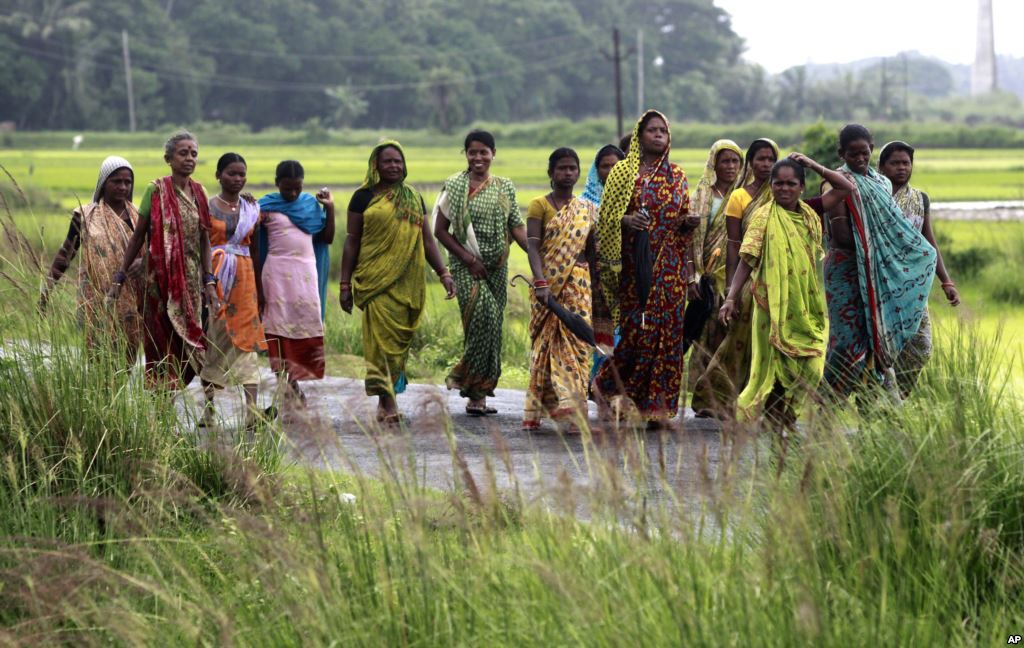




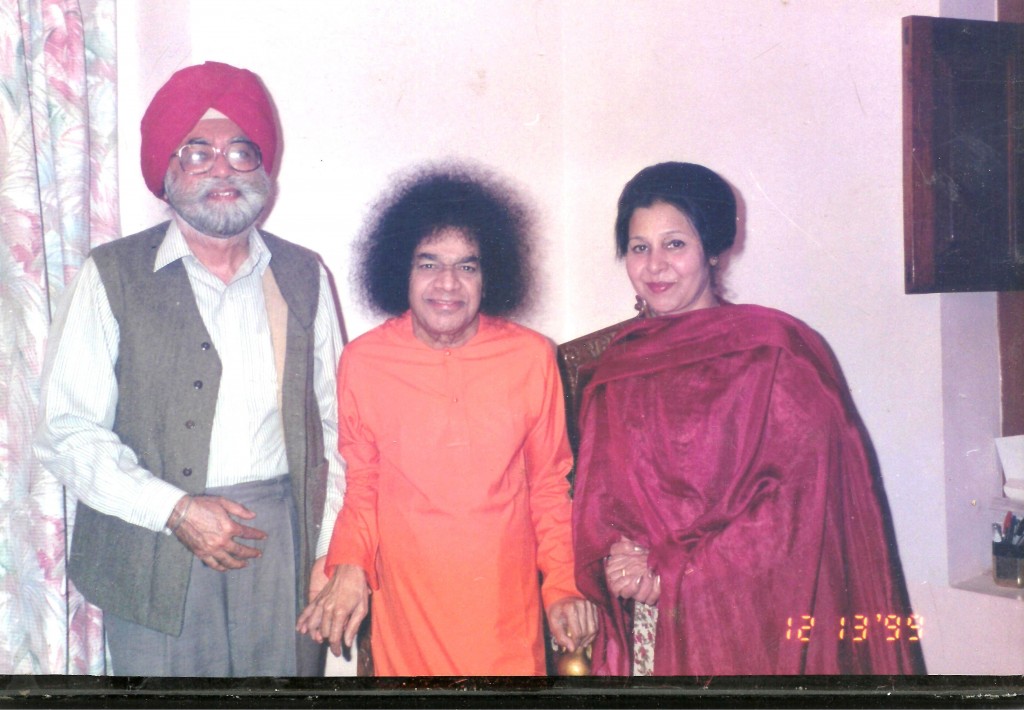
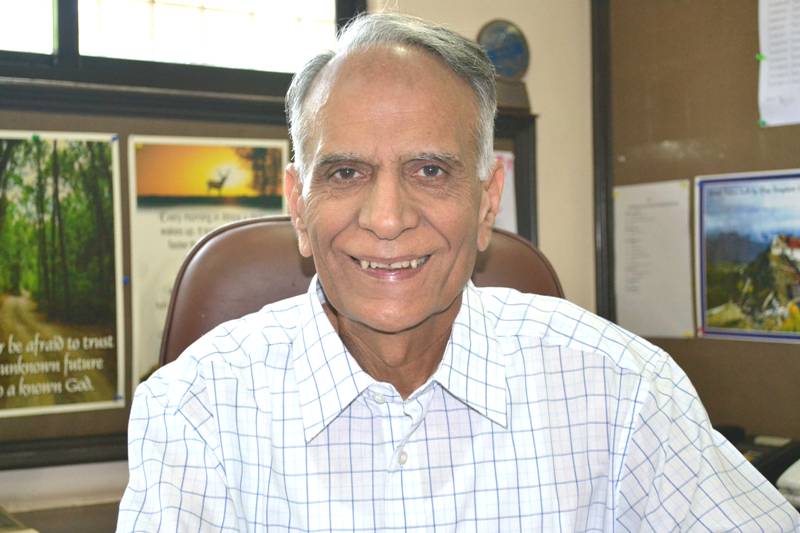





For some reason I missed reading this piece earlier.Even now it is not late. The issues raised in this have remain unchanged for as long back as mankind can imagine.We are nowhere near the answers to questions raised..and yet these questions haunt us.
” Never give in ” is a hollow slogan in this context.And yet the whole truth is given in the scriptures. The sooner we can adjust to these seemingly opposite views, the better it is for us.
Excellently worded by you…Past events are vividly described.
Surinder
Surinder,
Thanks. You are generous with your words!
To be honest, I had forgotten this piece, altogether. And I had started writing it all over again, since I am still haunted by these ideas.
Your comment has come in at a most appropriate time…it has saved me much effort!
I am indebted to you.
Surjit
Thanks.
Do tell us more about yourself. And if you like, contribute a piece for our Blog.
SS
Sir,
Nearly all great achievements were made by people who pursued their apparently unnecessary goals with passionate zeal and fervor. More than 150 mountaineers died in the process of ‘conquering’ the Everest. One of them was asked why he was trying to scale the peak. His simple answer was,
“Because it is there!”
The Freedom Fighters went about their task with a similar sense of purpose. Their obsession bordered on madness. Thus, if the pursuit of discovering the “TRUTH” is seen as a futile act of idle minds, the thought can be dismissed as cynicism by the faithful seekers.
Either way, as Dave Sood has said, I think most of us do spend some part of our lives in ‘contemplating on the mortality of soul’. It may be an aimless pursuit, but there is no escape from it!
GD
The write-up is nice and makes enjoyable reading.
I specifically liked what Shri Rajneesh had to say about the purpose of life.
But absolutely the best is what Ms Surinder Kaur says in her comments. Every word of what she says is better than what any great man has ever said.
Regards,
Maj Gen Vipan Passi
Vipin,
I have known you for more than forty years. And ever since I met you in the MCEME as a student officer, I have noticed that you and I are on the same frequency. both your observations are extrmely poignant.
God bless you and your family.
Surjit
General Surjit’s ibid Research has done a great service for we seekers. His work is a summary of most of the philosophies of lives. My heartfelt thanks.
Dear Bhatti,
You are very generous with your words.Actually, I did no research. It was only a bit of introspection.
Surjit
PS,
I want you to know that my wife is from the Bhatti family. So kind words from you sound a lot more sweet!!!
To me, it seems that this debate emanates from idle minds. Personally, I find meaning in life when I am busy with the household chores. I see God in every person and more so, in plants and flowers. When I sow a seed and the plant emerges, my heart is gladdened to see the buds come up and then bloom into flowers.
Yes. There is peace on the face of the Buddha in the statues which we have. But I do not know why he had to leave the house to search the Truth. I think he was rather unkind to his wife and the child, whom he left behind.
Surinder
An excellent story giving all the aspects of the subject matter. Read and read it. It times I got a different answer. The video was excellent.
Regards and keep it up sir.
Bhandar,
Thanks. This particular ‘ghazal’ is the most difficult to understand. It contains a lot of Persian words. But its phonetics make it eminently pleasing to the ears.
Surjit
Sir,
Whilst it is true that English has more or less overshadowed the native Indian langauges, I think we must all do something to ensure that our languages surviveand continue to be spoken and read.
Our culture is in these languages. The poetry cannot be translated. You have yourself said that the escence of Urdu, Hindi and Punjabi gets diluted when we translate it into English.
Therefore, some of us who write, must continue to express themelves in our own languages. When there is enough demand computer software will evolve. But soemone must make a beginning.
NC
Naresh,
No need to worry. The Bollywood will ensure that the Indian languages continue to thrive. The latest is a fusion of Indian languages with English. the middle class is using this mix in day-to-day conversation. And the films represent that.
Surjit
2997,
Religion and philosophy are closely linked. The framework of our laws also comes from religion. It’s very much required for creating an orderly society. My point is that the quest goes on forever.
OK I’ll make something on bottle rockets
3007
Dear Surjitji,
To start with, let me thank you profusely for sharing ” Salvation from Dukha and Gham” with me. With advancing age and a diminishing ability to concentrate and focus, I surprised myself by actually reading every word of what you have so painstakingly put together in this superb piece and am thoroughly relishing it. As I read and drifted along with the beautiful flow of words, expressions and descriptions, I was not able to stop reading till I reached ” The End”. Very very few people are able to record their experiences so vividly, so methodically, so meaningfully and so utterly readably. My heart is equally full of thoughts, feelings and beliefs, but I lack the will power to sit down and document all of it so meaningfully as you have done. Hats off to you Sir for using every moment of your retired existence so purposefully and sharing your experiences with the rest of us. Each Part of your narrative is better than the other and drifting from one to the other has been a delightful experience. Part 1 sets the pace most dramatically and the reader begins to identify himself too with his own alter-ego. Full marks to every word of your so called ” essay” which could not have been recorded more meaningfully.
Now that I am aware of the depth of your worldly wisdom, in a future mail I will endeavour to pen down a few of my own thoughts related to the very existence of mankind and the extent to which human endeavour is valid. Without doubt I will never be able to express myself so lucidly, so clearly and so methodically as you do, but I hope to make a sporting effort as and when my aging mood permits. Once again, please accept my sincere appreciation and congratulations for the superb piece you have so beautifully documented.
Towards the end there is a delightful photograph with Satya Sai Baba. Can it be assumed that the ” Smiling Sardar” is indeed the author of this piece ? Every strand of his salt-n-pepper beard, surrounded by a cheerful smile is radiating an aura of joy, happiness and good health, complimenting the august presence of His Holiness. We are IMPRESSED !!!!
Cheers and all the best
Lalit Mathur
12 April 13
The piece is very well written. You are indeed
brilliant at dissecting any such complicated issue and the whole article comes as a very readable and informative
piece. Warm regards ,
Vinod
Thanks for sharing.
warm regards
rk
Very nice piece. The moment I had read two lines I could place it was your alter ego.
But it left me wondering what are you at? The search is fathomless.
Jin baton ko khud nahin samajhte auron ko kha samjha rahe ho.
You could do with a better photo of Vinod.
Regards.
Viren
Viren,
Thanks. We got your message, and another picture has been added.
The search IS fathomless, and sometimes, it seems unnecessary. But if one has an idle mind, it provides a good outlet to pent up feelings.
Surjit
Great one Sir. Though I don’t read many books, but I read a lot on the net everyday. And I haven’t missed a single one of your blogs.
Regards
Paramjit Singh Gill
Secunderabad
Mob – 9780971422
PSG,
As long as I receive mails like yours, I will keep churning out these creations out of my idle mind!
Surjit
Paramjit,
As long as I keep receiving message from you, I will keep churning out these pieces. My idle mind has enormous capacity to ‘contemplate on the mortality of the soul’!
Surjit
absorbing!!!
THANK GOD, HE CREATED A MORTAL MAN AND NOT ANOTHER ‘GOD’
SULTAN
Sultan,
I agree with you.
We are so terribly attached to our wealth and social ‘status’ despite the fact that we KNOW that we are going to die one day, and leave everything behind. Just think what would happen if we were to be immortal!
Surjit
Dear Sir,
If you have to attain salvation, you need to be truthful,need a way and lead a life based on the right path.As a human being living in this world one cannot abstain from wordily life totally.At the same time,every human being looks for salvation.Most of us follow religion based on this perception that it is the way to get you there.God created no religion.Religion is a creation of mankind to meet his selfish ends .Therefore the path to salvation is not through religion or religious Gurus.It is through God himself who abides in you.He will show you the way,the truth and the life.Your search within you will get you salvation( freedom from rebirth and miseries of life).
There is no purpose of life ..Full Stop!
BUT we have to make it purposeful..
Your philosophy surpasses my dwarfed mind Hence I am sending it to my SPIRITUALIST friend
to get in touch with you .
Had you not been as intellectual as you are
you could have been
INDIAN POPE 17
All the best You are WONDERFUL
as much as I’m a phool..
When Bertrand Russell started learning philosophy, his friends and relatives teased him thus :
“What is mind ? No matter.
What is matter ? Never mind.”
It got on his nerves.
Philosophy is a never ending quest.
Hello my dear bother, I have never read such a long essay on such a serious subject before.I have done so just now. I feel so proud to be your elder brother! Of course I have known all along that you are a rare mix of intelligence, common sense, farsightedness and humour. I am also familiar with all the reading you were doing when you were so young. I also know that a large number of your admirers inspire you to write so well for them. This essay is your masterpiece. We will get it printed as a pamphlet,to be sent to whoever needs to read it. Hearty Congratulations! PS. I will read it again to grasp it better.
Firstly I did guess the charachter in the introduction.
Loved your subject line Dukkh and Gham.
No one has ever completed his Kaal Chakra without going through these phasess. How well we come out of it is the key to control one,s life.
How truthful is AVM’s couplet. I could identify with that.
Have you really found yourself after this piece?
Dave,
One can spring a surprise on strangers. But friends like you who even know the way I hold a pen, I cannot hope to keep secrets!
The quest for peace is lifelong. I have, however, stopped going to ‘living gurus’ The search ended after my brush with Buddha’s teachings. Detachment is fundamental to hisw teachings. Buddhism has very little reference to “God” And there is very little sectarianism in his teachings. Anyone can attend ‘Vipasana’ sessions.
With best wishes,
Surjit
Great to know your energy for research
Dear Manmohan,
The energy derives from your messages! I have no energy of my own.
Surjit
CHALTI CHAKKI DEKH KE DIYA KABIRA ROYE
DO PATTAN KE BEECH MAIN BAKI BACHA NA KOYE
CHALTI CHAKKI DEKH KE DIYA KAMAAL HASSAYE
LAGI RAHE JO KEEL SE USE KAAL NA KHAYE
Dear Vijay,
What an appropriate set of ‘dohas’!
I have saved them for use when the contxt demands this thought.
Thanks and best wishes,
Surjit